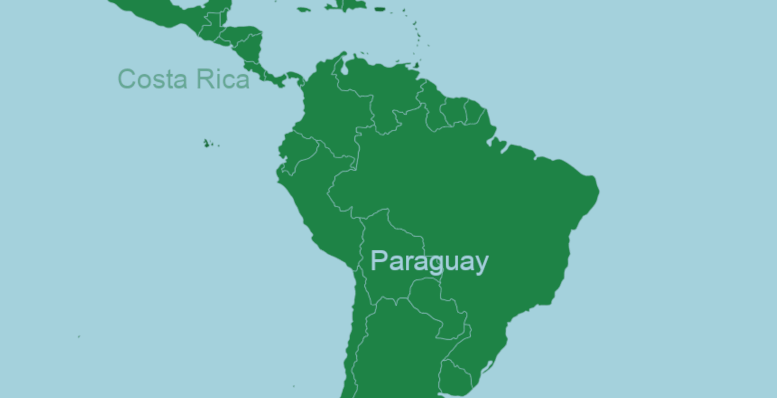Two hemp companies are pushing back against the seizure of a legal shipment of hemp products from Paraguay to Costa Rica, reflecting growing pains as countries across Latin America implement hemp laws and regulations.
Paraguayan producer Healthy Grains SA dispatched a shipment including chocolates and gummies, vapes, pet food, and hemp cigarettes with CBD to Costa Rica Hemp SA on Oct. 15. Costa Rica’s Drug Control Police stopped the shipment, placing the receiving company under suspicion of drug trafficking, and are still holding the products, according to the Latin American Industrial Hemp Association (LAIHA), which has intervened in the matter.
Police not updated
“We call on the government institutions involved to try not to delay the commercial processes and common filing in all market activity,” Lorenzo Rolim da Silva, LAIHA president, wrote in a Dec. 12 letter to Francisco Ernesto Gamboa Soto, Costa Rica’s Minister of the Economy.
The seizure shows that Costa Rica has not yet updated law enforcement protocols to align with the provisions of the country’s new cannabis cultivation, production and commercialization law and its regulations, Rolim da Silva observed in the letter. “This harms not only those currently involved, but also potential entrepreneurs,” he wrote.
‘100% compliant’
Da Silva said all of the products seized were “100% compliant with Paraguayan and the new Costa Rican laws,” and many are registered in Paraguay for human and animal use with all the necessary approvals by DINAVISA, the health regulatory authority.
“This is a huge setback in the country’s economy, affecting the development of peasant family farming, foreign investment and more,” said Allan Durán, CEO at Costa Rica Hemp. “Seizing hemp and CBD products under an international drug trafficking protocol gives a negative message to the developers of the crop, basically saying that Costa Rica is not prepared to start in this market for reasons of interpretation despite the fact that there is already a law that supports it.”
New rules in CR
Under Costa Rican rules, importing and exporting health products, food and industrial products are legal. Those rules, approved in September, also allow individuals and legal entities to be authorized to grow and process hemp, and guide post-harvest operations, storage, transport, product manufacturing and marketing of health, food and industrial products.
But law enforcement authorities apparently didn’t get the memo.
“It is important that these cases are known immediately to let the authorities know and press for the prompt updating of the inter-institutional mechanisms for the proper functioning of the industry, pay the necessary attention to the employer of the new activity and not fall into any type of discrimination at any stage of the process,” said Karen Viviana Castaño, LAIHA’s director of communications.
Liberalizing, in theory
The first authorization to grow and process hemp in Costa Rica was granted just last month under generally liberal rules the government said are intended to make licenses inexpensive and widely available.
Hemp advocates in Costa Rica say establishing a robust hemp sector can spark the development of agricultural value chains that would create economic and social opportunities in the country’s rural areas, and contribute to the growth of the pharmaceutical industry.
PROCOMER, the Costa Rican foreign trade promotions agency, has said a well-developed sector could give domestic farmers and producers access to global cannabis markets for their hemp products.
Paraguay’s hemp law has been on the books since 2019, and local companies have been advancing rapidly in the manufacture and export of raw materials and finished products.

